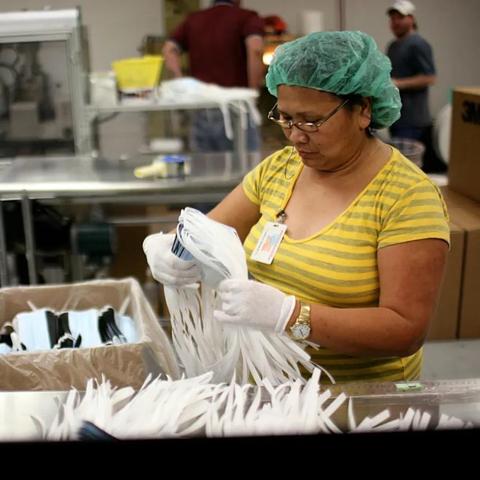Introduction to Carbon Tariffs and Development Debate
As the global community grapples with the fight against climate change, measures to reduce greenhouse gas emissions have become more spirited, including the introduction of carbon tariffs. These tariffs are levied on imports from countries with less stringent carbon emissions standards to encourage more ethical and sustainable trade practices. However, this move has sparked much debate, particularly surrounding its potential impact on the economic growth of developing countries as against its claimed purpose of combating global warming. This article delves into the nuanced complexities of these controversies, the official support for carbon tariffs, and the arguments for and against the exemption of developing nations from such constraints.
Understanding Carbon Tariffs
Carbon tariffs are trade barriers designed to protect the environment by taxing imports from countries that are perceived to produce more carbon dioxide in the process of manufacturing their goods. The assumption underlying these tariffs is that such measures would compel companies in carbon-intensive industries to adopt cleaner production techniques. This also serves as a means to level the playing field for companies wanting to operate within markets with broad environmental regulations, which may incur higher costs due to the implementation of such practices.
Impact on Developing Countries
Developing countries often express concern that carbon tariffs could undermine their competitive edge, given their dependency on exports for economic growth. These nations argue that they often cannot afford the necessary capital investments for greener technologies due to existing economic constraints and their developmental demands. Thus, they fear that carbon tariffs would effectively act as a new form of trade protectionism, creating an economic barrier to entry that hampers their industrial development and global competitiveness. This concern is specifically linked to the broader debate over whether these tariffs threaten the growth of developing countries more than they benefit the global environment.
Controversy: Carbon Tariffs vs. Developing Countries' Exemptions
The principle behind carbon tariffs, to safeguard the environment against the excesses of carbon emissions, is widely supported. However, its implementation has been controversial because of the unequal impact it may have on industrialized nations versus developing ones. Western countries, having already industrialized, have a lower emissions intensity, which puts developing countries at a disadvantage as they often rely on heavy industry and manufacturing to progress.
Developing Countries' Arguments:
- Economic Vulnerability: Developing nations assert that they require financial flexibility to invest in sustainable technologies but face constraints due to carbon tariff-induced higher costs.
- Differential Treatment: There is an argument for differential treatment to account for the varied responsibility and capacity of nations in addressing climate change.
- Potential Trade Displacement: There is a fear that carbon tariffs could lead to trade diversion with countries moving production to avoid the tariffs, potentially exacerbating carbon emissions indirectly.
Advocates of Carbon Tariffs:
- Environmental Protection: Supporters say that without tariffs, the environmental costs of goods are not reflected in their prices, leading to inefficient market outcomes.
- Level Playing Field: They argue that these taxes ensure that domestic industries are not disadvantaged because they already operate under environmental regulations.
- Encouraging Sustainable Practices: Advocates for carbon tariffs also believe they encourage countries to adopt greener technologies and practices to remain competitive in the global market.
Official Support and International Approaches
The official support for carbon tariffs is based on a range of international agreements and sentiments towards climate change. Many government and international entities recognize the urgency of reducing global emissions and the need for robust measures to achieve this. However, there is also acknowledgment of the developmental needs of less advanced economies.
As part of the framework of the UNFCCC and the Paris Agreement, while countries are expected to contribute to the mitigation of greenhouse gas emissions, allowances for different national circumstances were agreed upon. The same leeway measures are debated under the carbon tariff discussion.
Moreover, there are emerging official supports for models like border carbon adjustments, which seek to address free-riding by carbon-intensive countries. By providing a mechanism for countries to impose carbon tariffs without being in violation of World Trade Organization (WTO) rules, such approaches seek to balance environmental integrity with trade fairness.
The Way Forward: Balancing the Need for Carbon Reduction and Developing Country Concerns
The controversy between implementing carbon tariffs and potentially inducing developmental stymies in the majority of world nations is complex. Recognizing the unique challenges and capabilities of different countries, there is a growing consensus on the necessity of a more nuanced approach.
Potentially, developing countries could be granted temporary exemptions until they can ramp up their capacities to adopt and implement emissions-reducing technologies. Moreover, there could be a global fund, supported by developed nations, to help finance green technology transfers to less affluent countries, thus addressing the capacity-development gap.
This dual approach might strike a balance between ensuring the imperative of reducing emissions globally and respecting the developmental rights of developing nations. It is an ongoing discourse with implications for trade policies, climate change mitigation efforts, and economic evolution on a global scale.
Final Remarks
While carbon tariffs as an instrument to combat climate change are controversial, their potential benefits and risks cannot be minimized. It requires global cooperation, understanding, and a commitment to sustainable development. It is about ensuring that while the world progresses towards a more carbon-neutral future, economic growth and social progress are not compromised. The official stance, thus, inevitably evolves with the ongoing scientific research, economic analysis, and diplomatic negotiations on this challenging yet critical issue.
















 琼ICP备2023003230号-1
琼ICP备2023003230号-1
还没有评论,来说两句吧...